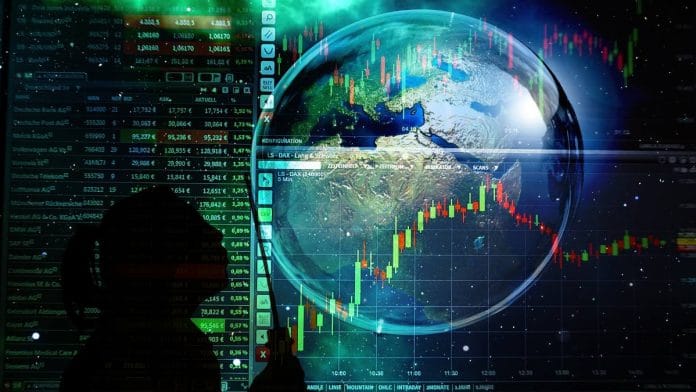The 2010s began with a financial crisis and deep recession in developed countries and ended with social unrest and the spread of authoritarian populism. The field of economics was far from immune to the upheaval. Here are a few of the ways the field changed in the past decade:
No. 1. The Credibility Revolution
In the 1990s, economics started to become more empirical. But there was always the danger that empirical economics would devolve into lazy correlation studies and dubious methodology. The response to this worry was called the credibility revolution. Starting in the late 2000s, empirical economics began to rely much more on quasi-experimental methods, which either study the effects of random variations in economic conditions, test the results of policy experiments or set up controlled trials.
The recent Nobel awarded to Abhijit Banerjee, Esther Duflo and Michael Kremer for their work on randomized controlled trials seems to validate the shift. The new approaches aren’t without their own challenges and limitations, but they promise to make economics much more scientific.
No. 2. The Shift to the Left
In the 1970s and 1980s, libertarian economists such as Milton Friedman commanded the limelight and dominated the policy conversation, while conservative supply-siders filled Washington’s think tanks. But in the 2010s, a number of left-leaning economists became the public face of the discipline. Chief among these was the Nobel laureate Paul Krugman, who called relentlessly for more fiscal stimulus and eviscerated Republican policy ideas. Thomas Piketty became a surprise bestseller with his book “Capital in the Twenty-First Century”; together with frequent co-authors Emmanuel Saez and Gabriel Zucman he has raised awareness of inequality and proposed sweeping new taxes. Meanwhile, the group Economists for Inclusive Prosperity has gathered an entire army of left-leaning academic stars and their ideas are making their way into the policy proposals of Democratic presidential candidates. Econ may have once been known as the conservative science, but no longer.
No. 3. The Fight Against Sexism
The pervasive sexism in the economics profession has long been an open secret. But in the 2010s the problem began to get the attention it deserved. A series of research papers documented how female economists suffer discrimination in publishing and tenure decisions and harassment online. The explosive revelations, widely reported in the press, sparked a major push for change. The American Economic Association has taken official steps to create a more welcoming environment for women in the profession and culture and awareness are shifting within many academic departments. Meanwhile, on social media there has been a grassroots attempt to help woman economists gain more recognition for their work.
No. 4. Warming to Minimum Wage
The basic theory of supply and demand says that minimum wage increases kill jobs. But a huge flood of new evidence in recent years has shown little or no negative effects. Research is also suggesting that concentrated corporate market power is a reason the real world doesn’t work like the simple theories in introductory textbooks. Although economists are still pretty evenly split on the question of a $15 national minimum wage, the debate has definitely shifted in favor of the policy.
No. 5. Warning About Monopolies
As megamergers become more common, gigantic companies are taking over industry after industry. Economists are warning that this could be leading to low productivity growth, higher consumer prices and greater inequality as profits suck up a rising share of national income. The jury is still out about whether technology or lax regulation is the root cause of the trend, and what policy makers’ response should be. But an era of complacency has come to an end.
No. 6. Heresy on Trade
In the past, unfettered free trade was the one thing economists could agree on. But a growing literature suggests that China’s entry into the World Trade Organization had dire consequences for a large swath of the American workforce. Meanwhile, amid the success of China and other manufacturing-oriented developing countries, more economists are turning back to the idea that industrial policy can be a good tool for poor countries to get rich. The old consensus is breaking down, allowing for a more nuanced and productive discussion of trade policy.
No. 7. The Diminished Clout of Economics
It’s a sad coincidence that just as economics is improving in so many ways, its public influence is on the wane. But the financial crisis and the devastating recession that followed discredited the discipline in the eyes of much of the public. Meanwhile, decades of rising inequality and stagnating mobility has made economists the targets of leftist ire and scorn just as the field has become substantially more progressive. On the right, President Donald Trump has thrown economists’ advice out the window, promoting political sympathizers over serious scholars and launching an ill-advised trade war. Economists are still doing good work — better than ever, in fact — but their influence in the halls of power may take decades to recover.-Bloomberg
Also read: What’s recession? The economic term back in conversation after Sitharaman’s Parliament reply






